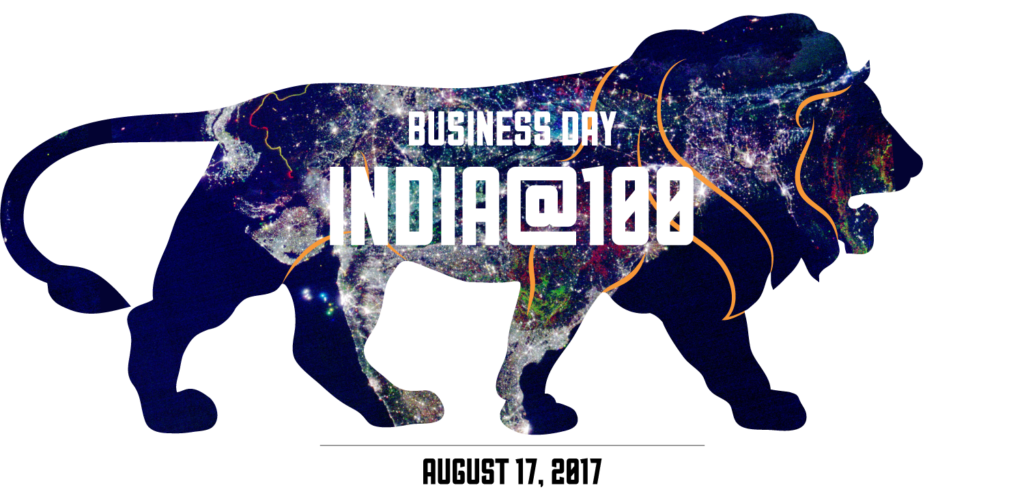august
Event Details
We want to understand the developments in the Textile industry in the next 30 years and its impact in India. From creativity and design to consumption, from new business models [...]
Event Details
Speakers
- Johanna Eriksson (Development Engineer) Aditya Birla / Domsjö fabriker
- Katarina Veem (Director), Swedish Water House / Sweden Textile Water Initiative
- Hemmant Jha, Chief Design Officer at the Godrej&Boyce
- Riju Jhunjhunwala, Managing Director, RSWM
- Moderator: Ewa Kumlin, CEO Svensk Form
Time
(Thursday) 08:00 - 08:45
Location
Stockholm Waterfront Congress Center
Nils Ericsons Plan 4, Stockholm
Organizer
India Unlimited
Event Details
Part 1– Technology Impact: On My Country Future perspective on Security and ICT in the coming 30 years. Smart ICT is a key driver for “Make in India”, “Digital India”. Mobile broadband [...]
Event Details
- Alan Mamedi (CEO), Truecaller
- Mats Hultin (CIO), SAAB
- Moderator: Ulf Skarin, Veckans Affärer
- Akash Passey, Vice President Volvo Group
- Stefan Pålskog, Managing Director Scania India
- Sarbajit Deb, Nordic CEO, LTI ( L&T Infotech)
- Annelie Stiglund, Deputy Director, Tekninföregatan
- Moderator: Ulf Skarin, Veckans Affärer
- Jerry Jonsson (Sr. Manager), Reliance Industries
- Hemmant Jha (Chief Design Officer), Godrej & Boyce
- Jonas Petterson, CEO, Form us with Love
- Sairee Chahal (Founder), Sheroes
- Moderator: Ulf Skarin, Veckans Affärer
Time
(Thursday) 08:50 - 10:45
Location
Stockholm Waterfront Congress Center
Nils Ericsons Plan 4, Stockholm
Organizer
India Unlimited
Event Details
India is expected to be the third-largest economy by 2025. Powering that growth is the trend toward urbanization, which is going to increase consumption power, as well as economic leverage. [...]
Event Details
Speakers
- Mats Agervi, (CEO), Combient
- Frederik Fexe, Deputy CEO, Business Sweden
- Håkan Buske (CEO) SAAB
- Palka Sahni, Deputy Secretary, Department of Industrial Policy and Promotion
- Pankaj Srivastava, CMD, Air India
- Moderator: Rituparna Bhuyan, Assistant Editor CNBC India
Time
(Thursday) 10:55 - 11:40
Location
Stockholm Waterfront Congress Center
Nils Ericsons Plan 4, Stockholm
Organizer
India Unlimited
Event Details
Skill development is being given a priority by the Indian Government with a hope that Skill India Mission will supply huge human resource not only in India but also Internationally. [...]
Event Details
Speakers
- Sairee Chahal, Founder and CEO, Sheroes.in
- Ulrika Sundberg, Consul General of Sweden in Mumbai
- Captain Nivedita, Air India
- Moderator: Anna Malmqvist, CEO & Founder, Diversify Consulting AB
Time
(Thursday) 12:25 - 13:10
Location
Stockholm Waterfront Congress Center
Nils Ericsons Plan 4, Stockholm
Organizer
India Unlimited
Event Details
The people in India are well educated, ambitious and entrepreneurial. There is a rapidly growing middle-class with a diverse talent pool which is also very attractive to Sweden and Swedish [...]
Event Details
Speakers
- Maria Rankka (CEO), Stockholms Handelskammare
- Sarbajit Deb, Nordic CEO, LTI ( L&T Infotech)
- Carl-Johan Westring Vice President at EF Education First
- Moderator: Aticka Chona, CEO at GreenKarma and Managing Director- Six Year Plan (India)
Time
(Thursday) 13:25 - 14:10
Location
Stockholm Waterfront Congress Center
Nils Ericsons Plan 4, Stockholm
Organizer
India Unlimited
Event Details
With high growth, India will need to find Innovative technological solutions to help solve issues connected with creating sustainable environments We will have Ms Anumita Roy Chowdhury, Executive Director - Research and Advocacy, [...]
Event Details
Speakers
- Anumita Roychowdhury Executive Director – Research and Advocacy, Centre for Science and Environment (KeyNote Speaker)
- Östen Ekengren (Vice General Manager), IVL
- Bengt Rittri (Founder), Blueair
- Mehrdad Mahdjoubi (Founder & CEO), Orbital Systems
- Moderator: Nalini Bonnier, Director Deutsche Bank in Stockholm
Time
(Thursday) 14:15 - 15:00
Location
Stockholm Waterfront Congress Center
Nils Ericsons Plan 4, Stockholm
Organizer
India Unlimited
may
Event Details
Event Details
Time
(Saturday) 09:30 - 10:30
Location
Kungsträdgården
Stockholm
Organizer
India Unlimited
Event Details
Möt Mikael Bergstrand -Författaren bakom succéboken och teveserien ”Delhis vackraste händer” Följ med på en fartfylld litterär resa som kryssar mellan indiska upplevelser och svensk sommarmagi. Möt författaren Mikael Bergstrand som gjorts succé [...]
Event Details
Time
(Saturday) 14:00 - 14:30
Location
Kungsträdgården
Stockholm
Event Details
Judith Bourque blev meditationslärare hos Beatles guru i Indien under flower power-eran och berättar hur man genom meditation skapar positiva effekter på kropp och sinne. Under presentationen ges deltagarna ett [...]
Event Details
Time
(Saturday) 15:00 - 15:30
Location
Kungsträdgården
Stockholm
Event Details
Ledarskapskonsult, coach, författare, leg sjuksköterska, fil kand Beteendemedicin & Hälsopsykologi, Folkhälsovetare, examen från RishikesCollege of Ayurved, India. Utbildad i Leadership Management Training från Krauthammer University, Schweiz. Eva är en av de ledande personerna inom Ayurveda i Sverige och har ett unikt sätt att [...]
Event Details
Time
(Saturday) 15:35 - 16:05
Location
Kungsträdgården
Stockholm
Event Details
Resa med tåg i Indien Följ med på Ökenexpressen till Jaisalmer, bergståget till Darjeeling och det ångloksdrivna tåget på kuggstångsbanan upp till den före detta brittiska rekreationsorten Ooty i Nilgiribergen. Författaren [...]
Event Details
Time
(Saturday) 16:10 - 16:50
Location
Kungsträdgården
Stockholm
Event Details
Come and listen to experience of students from ISSR, The International School of the Stockholm Region at their sister school, NISV, Navrachana International School in Vadodara. They have a longterm exchange [...]
Event Details
Time
(Saturday) 17:00 - 17:30
Location
Kungsträdgården
Stockholm






